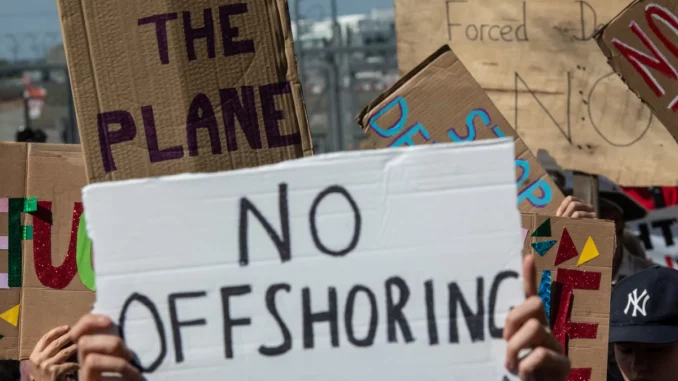
The United States is nearing a controversial agreement with Rwanda to host asylum seekers and migrants denied entry at the U.S. border, echoing the UK’s now-defunct “Rwanda scheme.”
The deal, reportedly advanced under President Donald Trump’s renewed migration crackdown, aims to relieve overcrowded U.S. detention centers by outsourcing deportations to Kigali. Rwandan Foreign Minister Olivier Nduhungirehe confirmed bilateral talks are underway, though no formal details have been disclosed. Analysts note the potential arrangement mirrors the UK’s costly and ultimately scrapped plan, which was dismissed by new Prime Minister Keir Starmer as “a gimmick” and “ineffective.”
Critics, including human rights groups and the United Nations, warn of the legal and ethical dangers. Amnesty International’s Christian Rumu called the move “political” and profit-driven, warning it exploits vulnerable populations. “Rwanda is in a very difficult situation, and by proposing this service, there is certainly a return that it will be expected,” said Rumu. The UNHCR emphasized that any externalization of asylum responsibilities risks violating international refugee protections.
The U.S. appears to have already tested Rwanda as a deportation destination, reportedly spending $100,000 to relocate Iraqi national Omar Abdulsattar Ameen to Kigali earlier this year. While the Trump administration touts such deals as practical solutions, rights advocates argue they endanger those fleeing persecution. As Rwanda seeks financial support and geopolitical leverage in the Great Lakes region, concerns grow that political gain is being prioritized over humanitarian duty.
